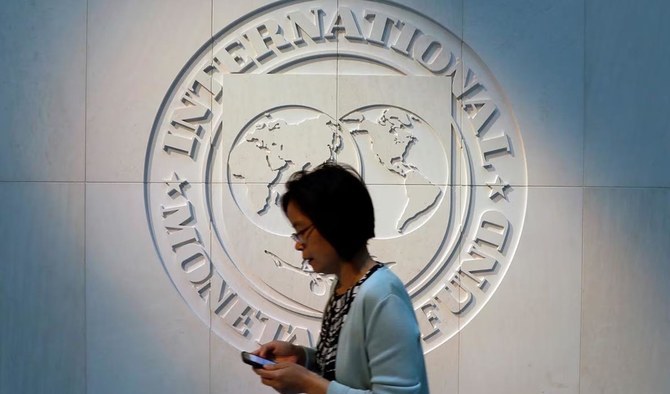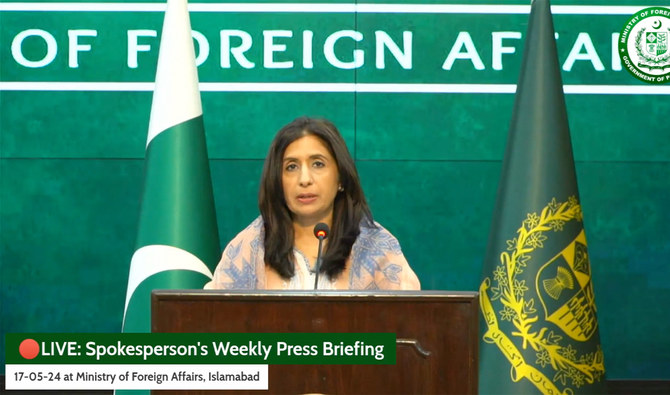KARACHI: Pakistan and the International Monetary Fund (IMF) on Wednesday reached a staff level agreement (SLA) on the second and final review of Pakistan’s bailout program, which will release $1.1 billion for the debt-ridden South Asian economy.
Since the $3 billion bailout was approved in June last year, Pakistan has implemented several IMF-mandated reforms, such as budget adjustments, increasing interest rates, and higher energy prices.
A caretaker government was given unprecedented powers to make necessary economic policy decisions, oversee reforms and the release of funds, without fear of political backlash. With the current program concluding on April 11, Pakistani officials are considering a new medium-term program with the IMF.
In addition to meeting continuous targets, the IMF has identified the following reforms for Pakistan to undertake:
STRENGTHENING PUBLIC FINANCES
Pakistan has been tasked with gradual fiscal consolidation, broadening the existing tax base, improving tax administration, and debt sustainability, all while protecting the vulnerable.
Pakistan has to meet a primary budget deficit target of 401 billion rupees ($1.44 billion), or 0.4 percent of gross domestic product, for the current fiscal year before the government presents its budget in June.
In a media brief in December 2023, the Federal Board of Revenue (FBR) said Pakistan had a “very narrow tax base” of around 5.2 million people in 2022, out of a population of 240 million people.
The FBR said it plans to add 1.5 million new taxpayers to the existing base during the current fiscal year.
RESTORING THE VIABILITY OF THE ENERGY SECTOR
Pakistan was told to prevent further accumulation of circular debt in its power sector, arising from subsidies and unpaid bills.
It needs to implement reforms to reduce costs by improving electricity transmission and distribution, moving captive power into the grid, improving governance, and combating theft.
Additionally, Pakistan should maintain power and gas tariffs at levels that ensure cost recovery, with adjustments made to safeguard the financially vulnerable, through existing progressive tariff structures.
In a report released in January, the IMF noted Pakistan missed its target for power sector arrears, largely due to lower-than-expected recoveries and tariffs.
CUTTING INFLATION
Pakistan has faced significant inflation challenges, hitting a peak of 38 percent last May, partly influenced by tax measures to meet IMF requirements.
The inflation rate has since eased, with the consumer price index rising 23.1 percent year-on-year in February, the lowest increase since June 2022, partly due to a high base effect.
On Monday, the central bank maintained interest rates at a record high of 22 percent for a sixth consecutive time due to ongoing inflation risks. In January, the central bank adjusted its forecast for average inflation this fiscal year to 23 percent-25 percent, up from 20 percent-22 percent, amid rising energy costs.
FOREX MARKET REFORMS
The IMF recommended that Pakistan adopt a market-driven exchange rate to help balance external accounts and rebuild foreign reserves. It asks for more transparency and flexibility in the market.
On Monday, Pakistan’s central bank chief anticipated a $2 billion debt rollover this week, with an additional $4 billion expected by June, which would bolster the country’s reserve position, with an import cover of just over 1.6 months.
To meet IMF conditions, Pakistan’s military and central bank cracked down on black market operations in September.
The IMF asked that the difference between interbank and open market rates should not breach 1.25 percent before the release of a second tranche of funds under the bailout.
PROMOTING THE PRIVATE SECTOR
The IMF said the suggested reforms could stimulate private sector growth in Pakistan, but said further protections that distort the market need to be removed.
The IMF suggests enhancing reforms for State-Owned Enterprises (SOEs) to define ownership and government roles more clearly.
Since elections in February, Pakistan has a new parliament which has the power to amend the SOE act. In September, the caretaker government identified 10 SOEs to be privatized, or improved.
($1 = 278.2500 Pakistani rupees)
















